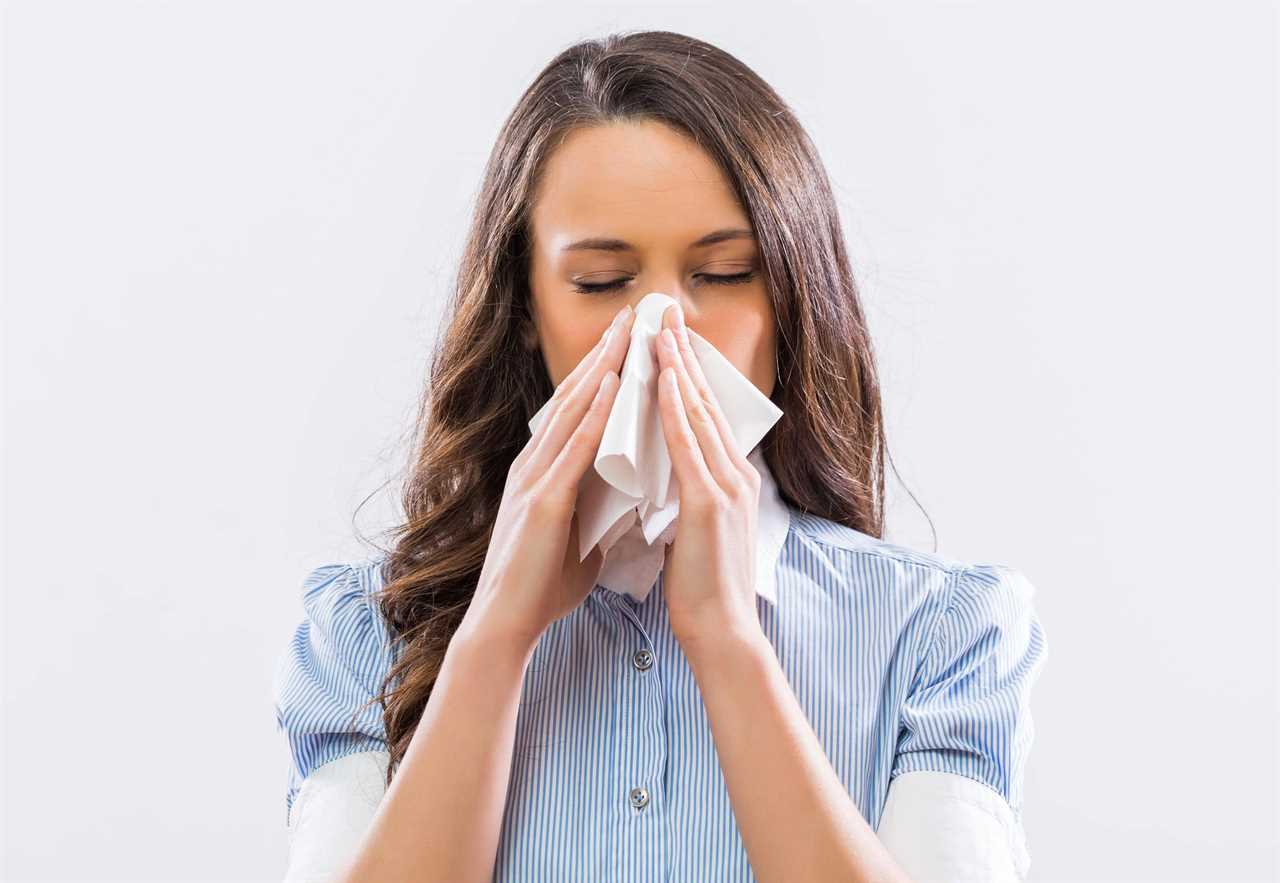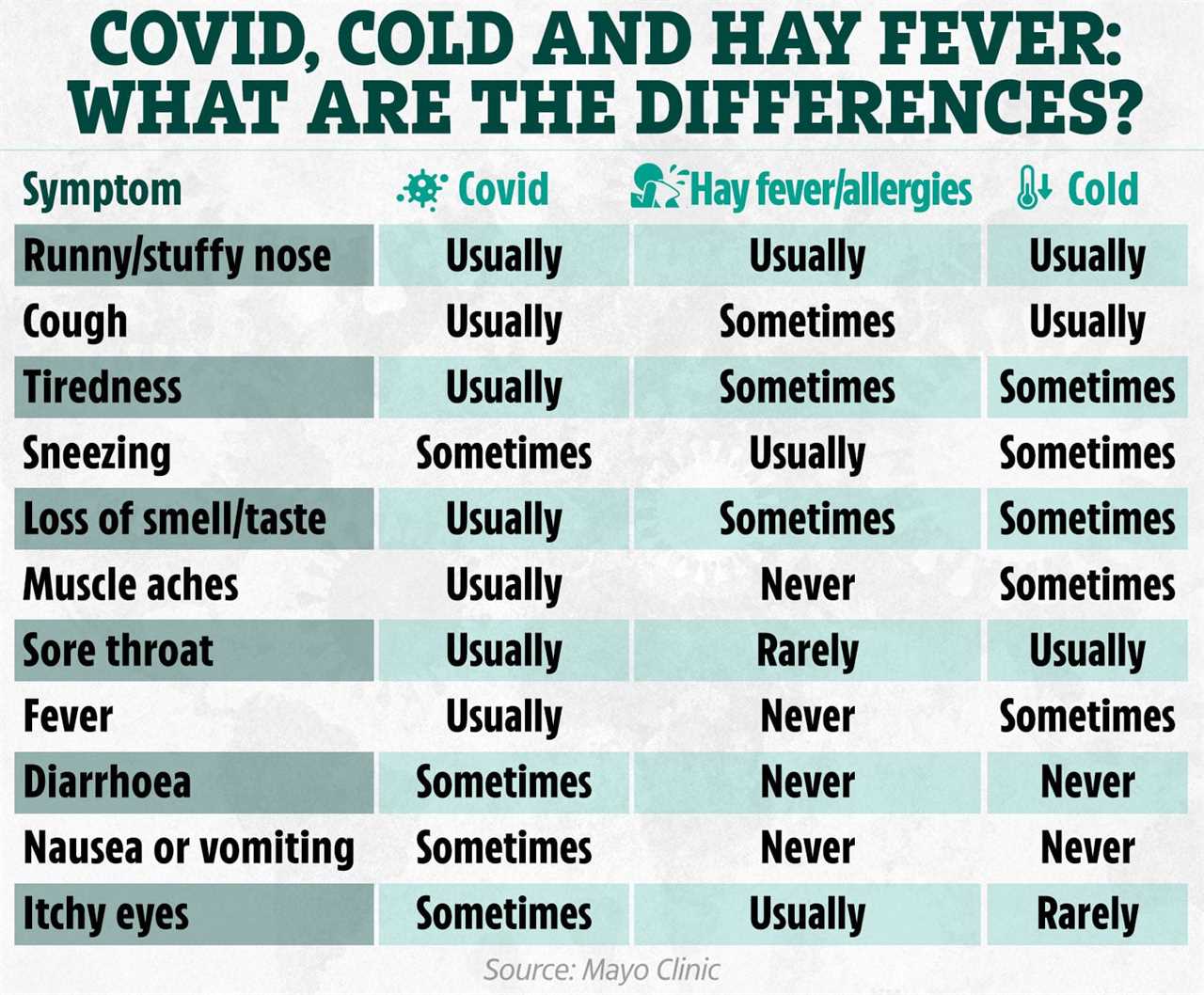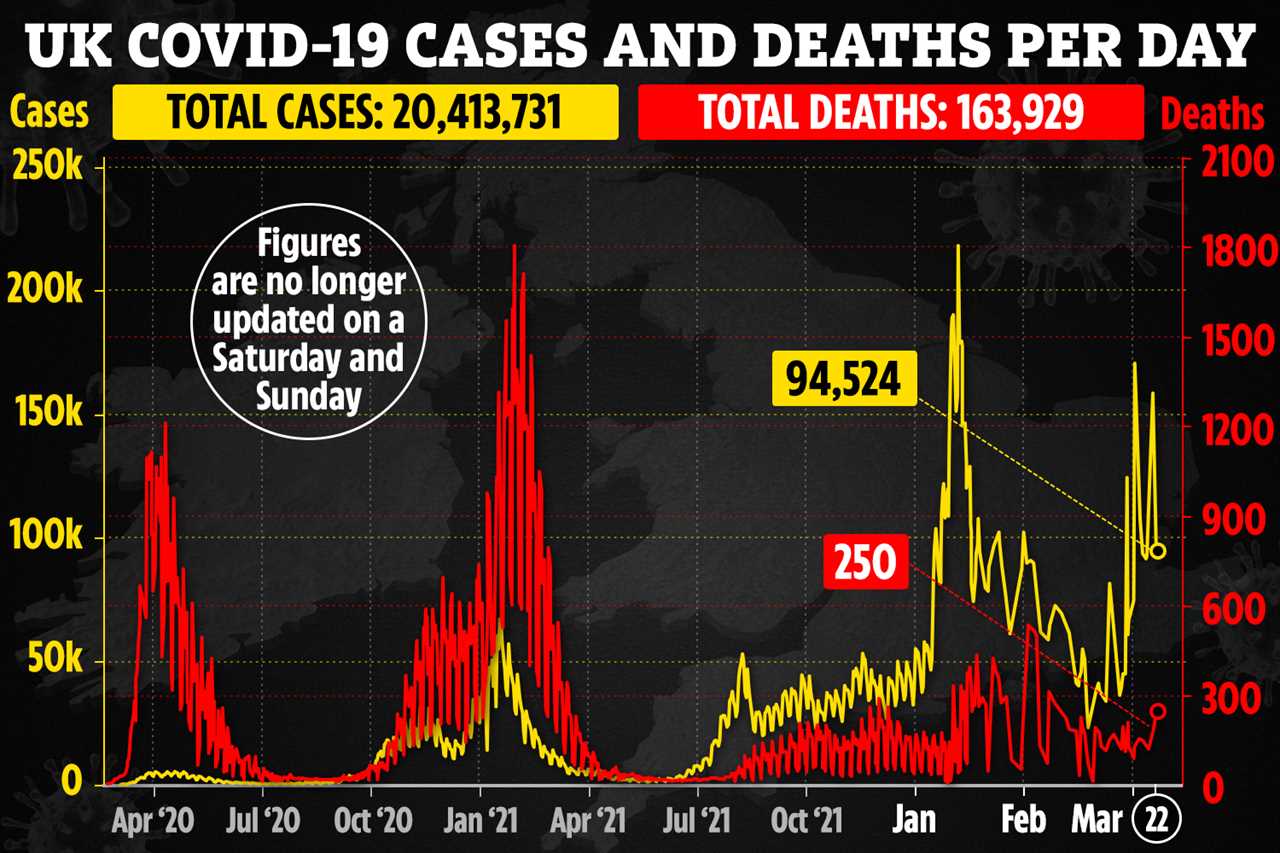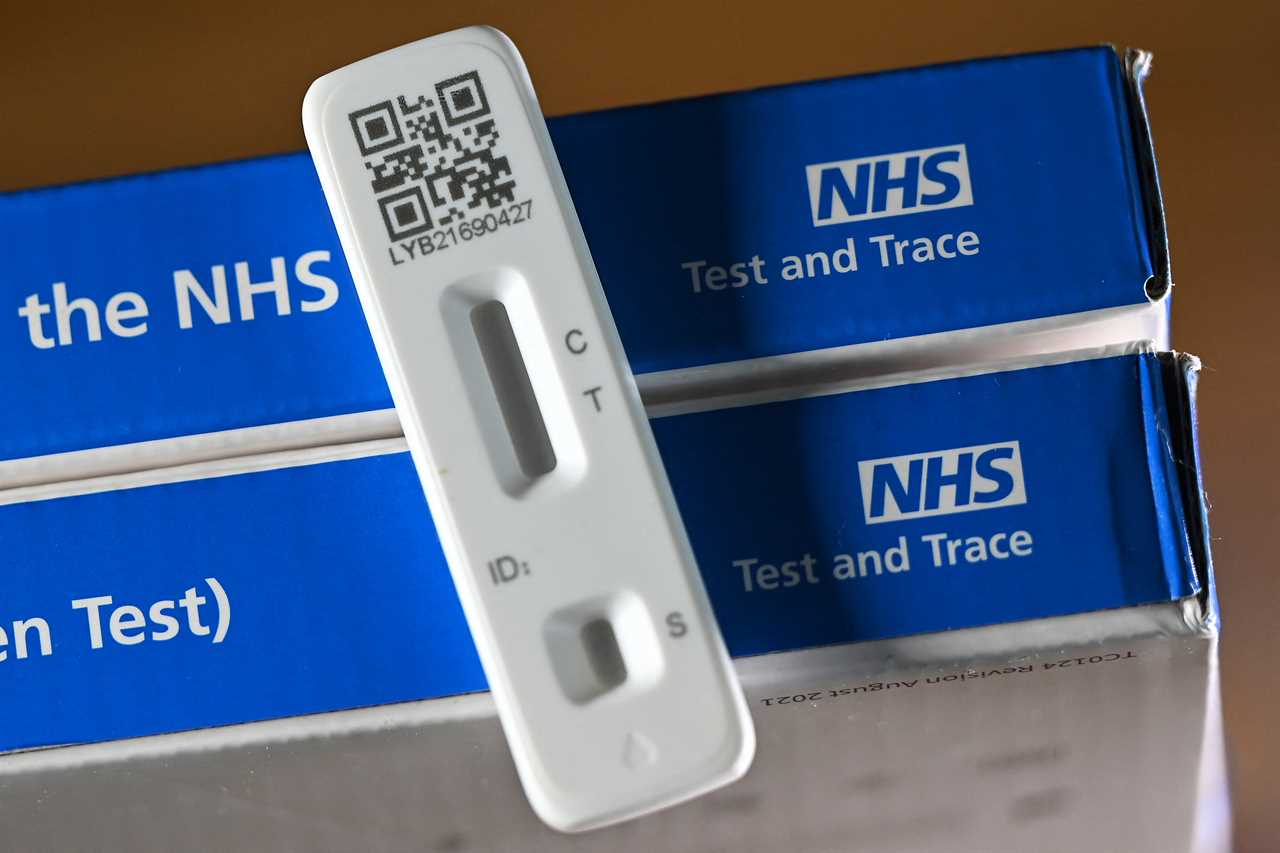COVID cases are reaching peak levels, other bugs are circulating and hay fever season is starting.
If you come down with a runny nose, sneezing or itchy eyes, you’ll be hard pushed to guess what you’re unwell with.


Coronavirus testing is being scaled back dramatically, making it significantly harder to check if you’re infected.
From April 1, free testing will end under the Government’s plan to move forward with Covid.
Only a small number of high-risk people will be able to get their hands on tests.
However, people trying to order lateral flow tests from Monday evening were informed that tests are being held for the most vulnerable – a week earlier than planned.
Read more on coronavirus
It comes as the temperature in the UK warms up amid the start of hay fever season – with the first pollen bomb of 2022 set to hit parts of the UK today.
Hay fever symptoms can start early in spring for many sufferers, while others don’t get sniffly until the summer, depending on the pollen type they are allergic to.
More than 20 per cent of the population are struck with hay fever each year.
How to tell if you have Covid, a cold, or hay fever
The symptoms of these three conditions are undoubtedly similar.
Dr Sarah Jarvis, GP and Clinical Director of Patientaccess.com, told Trending In The News: “It can be a challenge to tell the difference between hay fever, cold and Covid-19 symptoms.
“This is especially the case with the Omicron variant – at the start of the pandemic, symptoms were more clearly flu-like, with fever, harsh dry cough and often a loss of or change to your sense of smell and/or taste.
“With Omicron, runny nose, sore throat and sneezing are much more common. In addition, symptoms are often less severe than with Delta or Alpha – more like a cold than flu.”
But there are some very small differences between the three conditions.
Firstly, hay fever symptoms tend to come and go over several days, rather than cause a sudden bout of illness.
You can usually relieve hay fever with antihistamine medication and other remedies, which would suggest that your symptoms are not virus-related.
Dr Jarvis said: “Despite the name, hay fever never causes raised temperature and doesn’t often lead to tiredness.”
Prof Maureen Baker, Chief Medical Officer for Healthily – a symptom checker platform – said most people with hay fever have had it before and know what to expect.
But she told Trending In The News: “Some people will get hay fever symptoms for the first time, and certainly, if you start with a runny nose and sneezing, it’s perfectly reasonable to think that it might be Covid.
“But if they don’t start to feel ill, and hay fever medication helps, it probably is just hay fever.”
Covid is more likely to give you a full-body sense of being unwell.
Although it does not affect everyone in the same way, it tends to come on more suddenly with an overwhelming feeling of tiredness, with a sore throat commonly the first sign.
Prof Baker said: “There are a few things that make it more likely to be Covid. Certainly, if you lose your sense of taste or smell, that’s much more likely to be Covid than flu, a cold or hay fever.”
A cold may build up over several days. It is less likely to cause symptoms like muscle aches or a high temperature than Covid.
However, Covid does not always cause muscle aches, a high temperature or loss of taste and smell, just to add to the confusion.
It becomes a bit of a game of probability; do you usually get hay fever at this time of the year, and is the pollen count high?
You can check the pollen count each day using the Met Office website.
How high are Covid cases right now, and the odds you have seen someone with it?
Currently, around one in 20 people have the virus, according to the Office for National Statistics, which is very high.
Dr Jarvis said: “Given how high case levels are for Covid-19 at the moment, and given that we’re coming out of the annual cold season, if you develop any cold-like symptoms, you should assume it’s Covid-19, stay home and get a test.”
The best thing to do is try and get tested for Covid if you have symptoms reflective of the virus.
High street stores now sell lateral flow test kits for £1.99 for a singular test.
If the result is positive, you are not required to legally self-isolate in England.
However, you are strongly advised to do so, in order to prevent others catching the virus.
If you are unable to get a test, but have all the signs it is Covid, it may be best to limit contact with others until you are feeling better.
Covid symptoms
The Government has listed the top three symptoms of Covid as a persistent cough, high temperature or loss of smell/taste since May 2020.
Since then, new Covid variants have emerged and vaccinations have altered the immune response to the disease.
The ZOE Covid Symptom Study, which records data on symptoms with the help of millions of app users, report that the 20 most common signs now are:
- Runny nose
- Fatigue
- Headache
- Sore throat
- Sneezing
- Cough
- Hoarse voice
- Chills or shivers
- Other
- Unusual joint pain
- Fever
- Dizzy or light headed
- Brain fog
- Eye soreness
- Altered smell
- Lower back pain
- Unusual muscle pains
- Swollen glands
- Skipped meals
- Ear ringing
You’ll notice that many of these symptoms – including runny nose, sneezing and eye soreness – are the same as hay fever.
Hay fever
We often associate hay fever with fresh cut grass in the summer.
But the condition can strike as early as March.
The Met Office says: “Tree pollen occurs first, typically from late March to mid-May.
“Grass (which actually has two peaks) lasts from mid-May until July, and weed pollen covers the end of June to September.”
Tree pollen affects around 25 per cent of people, it says, but the majority of sufferers start sniffling in the summer.
The NHS says the main symptoms of hay fever are:
- Sneezing and coughing
- A runny or blocked nose
- Itchy, red or watery eyes
- Itchy throat, mouth, nose and ears
- Loss of smell
- Pain around your temples and forehead
- Headache
- Earache
- Feeling tired
If you have asthma, you might also:
- Have a tight feeling in your chest
- Be short of breath
- Wheeze and cough
Common cold
Just because Covid has reigned for the past two years, does not mean other viruses and bacteria aren’t circulating.
The “worst cold ever” became a feature of summer 2021, as people came out of Covid restrictions are were hit with bugs their immune systems had forgotten about.
Other viruses that may find you include respiratory syncytial virus (RSV), rhinovirus and human metapneumovirus (hMPV), to name a few.
Norovirus is also spreading, but this causes slightly more distinctive symptoms like that of a tummy bug.
Read More on Trending In The News
Cold symptoms, according to the NHS, can include:
- A blocked or runny nose
- A sore throat
- Headaches
- Muscle aches
- Coughs
- Sneezing
- A raised temperature
- Pressure in your ears and face
- Loss of taste and smell










